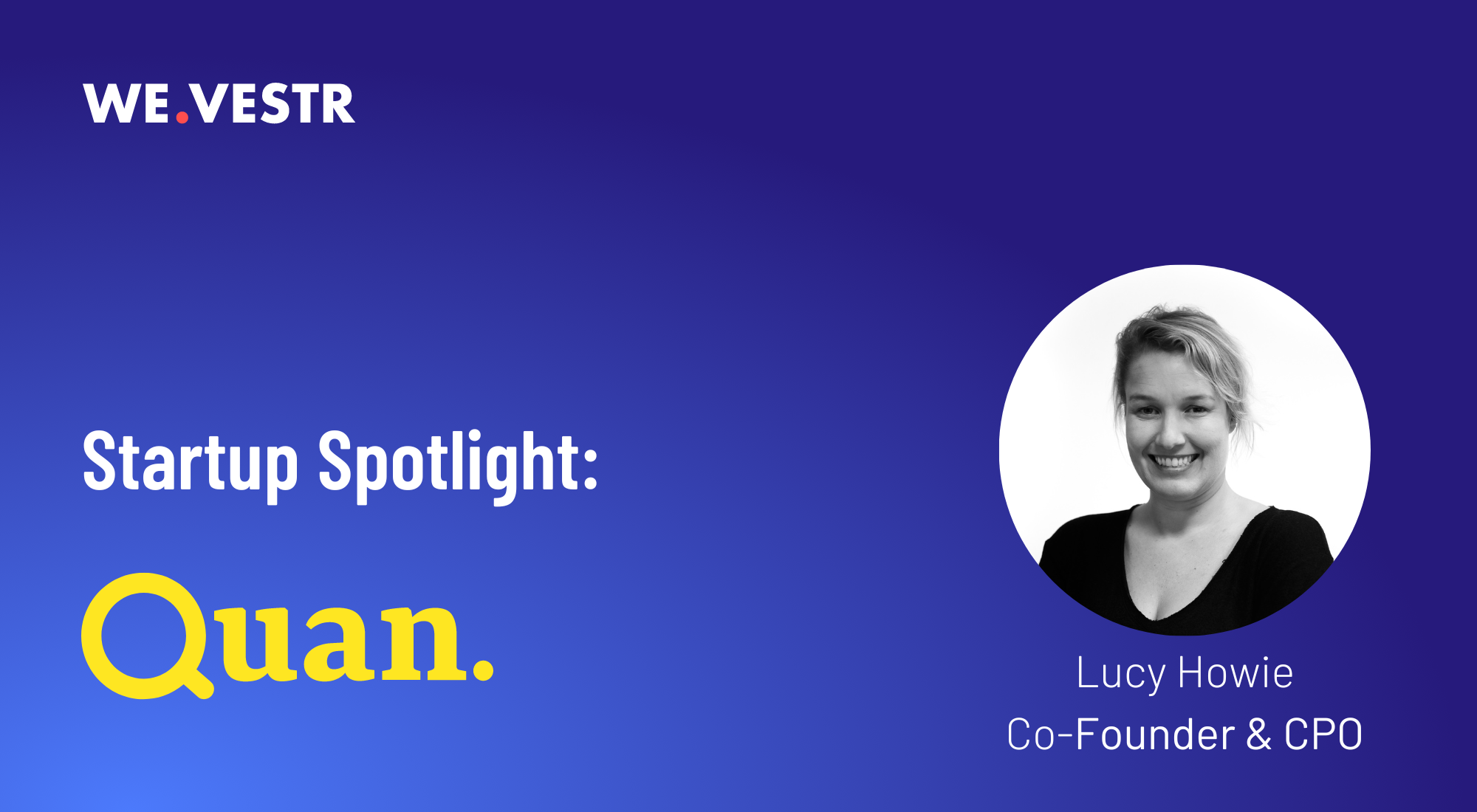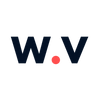Startup Spotlight: Lucy Howie

This month, we dive into the journey of Lucy Howie, the Co-Founder and Chief Product Officer of Quan, a pioneering platform for employee well-being. Lucy shares how her experiences navigating startups, consulting, and leadership at big tech led to Quan. She also shares how they launched Quan, her experiences at Y Combinator, and more.
Through Quan, Lucy aims to change how companies approach employee well-being, offering a solution that boosts team performance and prevents burnout.
Why did you start Quan?
In my experiences leading up to Quan, as a business consultant, a startup CEO and an executive Zalando, I saw first-hand that the cost of success was often employee well-being. I thought there has to be a better way of achieving growth, and especially hyper-growth, that doesn't burn out employees in the process. I believed this was something important that needs to be measured and managed.
Together with my co-founder, we discovered it’s a big problem: 81% of workers have experienced burnout or a mental health issue at work. So we started Quan to help companies solve that.
How’s the company going?
We're targeting enterprises, and have about 30 customers so far including ASML and Bynder in NL. We just signed a partnership agreement with Zorg van de Zaak, an occupational health provider, to integrate Quan into their platform, and offer it to their 60,000 customers. So it’s a really exciting time for us to be scaling at the moment!
This partnership model is especially exciting. Zorg van de Zaak wants to focus on prevention. They want to act before employees reach burnout or need sick leave, and utilize the data. And that’s what Quan is all about too, our goal is to help more and more companies understand the drivers of organizational well-being, and use that data to lower their healthcare costs, such as burnout and sick leave.
At the end of last year we also closed our $3 million seed round, led by 4impact, Hearstlab and Y Combinator (YC). It was fantastic get follow-on from YC, because they only do that for 20% of companies that go through their accelerator.
Briefly take us through the process of building and launching the first version of Quan.
We had some hypotheses that we wanted to test and we wanted to understand what the real issues were. To do this, we first conducted 500 user interviews with experts - especially doctors, coaches, psychologists and HR people, but also employees.
We took all this research, and built an MVP where employees would take an assessment, and get matched to interventions based on their assessment. So things like therapy apps and exercises to improve their well-being. We actually used an agency to build the first version (before we had engineering in-house).
We had 1000 people take the assessment, and what we found was that burnout, stress at work, and anxiety at work were the biggest issues. Also, user feedback told us something important. No matter how many therapy apps, Headspace courses, or yoga videos you point someone to, they will keep burning out unless you address the core issue. And the core issue is ways of working.
So we had to really pivot to support teams and managers to adopt healthy work practices. We are now seeing the results of that pivot, with an average 90% engagement on the platform, and an average of 30% improvement in key indicators for teams, such as stress and burnout.
As well as being Co-founder, you’re also the CPO of Quan. What are some strong opinions you have about product design, and how do you put them into practice at Quan?
I don't subscribe to the Silicon Valley mentality of "build it and they will come". We instead take a really design-driven approach. I believe in first deeply understanding the problems and needs before moving forward. Our design process involves forming hypotheses, testing prototypes, and iterating based on feedback. We build, iterate and learn.
We engage in user research, including expert interviews and competitor analysis, to inform our hypotheses. As we’re B2B, we’re quite close to our customers. So we're able to test things with them using prototypes made with tools like Figma. And we only build after testing and feedback. I think this approach is really making sure we're building to solve real needs. As a result, we haven't made big mistakes in terms of building something that people don't need.
We’re also very data-driven and always ask “what is the data telling us”? We do thorough product metric reviews every week, then do a deep-dive every month into some area that is not working or doesn't have the uptake we expected.
Our product management process has recently undergone a revamp. While we previously followed agile sprints, we found it too process-heavy, especially as we only have four developers. Now, we focus on simplicity, with daily stand-ups and streamlined progress tracking. It's more important to us to just get stuff done.
Quan went through Y Combinator. How was that experience for you?
Y Combinator, based in Silicon Valley, is one of the world's top startup accelerators. Our batch received 7500 applications and they only accepted 300 startups. The application process is quite involved and includes two intense interviews. We were fortunate to receive some coaching from Dutch companies who had gone through YC before.
The accelerator itself was pretty incredible! During the three-month program, you’re preparing for “Demo Day”, where you pitch to 1000 investors in one room. You're working backwards from there, and you have to get as much traction as possible in the three months leading up to Demo Day.
You're also working on your “vertebrae” as they call it, which is your investor pitch. You’re literally working on your investor pitch for that for that whole time, as well as pre-raising from investors. It was very, very intense. It was all about finding repeatable and scalable models, which was a wonderful learning experience. And we've taken a lot of that discipline into what we do today.
What was really incredible about it was the people we got exposed to. Twice a week, we would hear from founders who had been through YC, and gone on to big things. For example all three Airbnb founders came in to talk to us, and you're able to ask questions and discuss ideas and issues you’re facing. So the people you're able to access and learn from is amazing.
YC really gave us a stamp of approval in the tech world, which was great. But as we were foreigners, and only in the US for a short time, it was a challenging experience. We didn't have the connections of the US-based startups. But overall, a great experience.
How do you approach failure and setbacks?
I think a key part of our culture is learning from mistakes. We've of course made mistakes. It's not about the mistake, but instead what you learn from it. I believe that everyone in the team is really well aware of that.
We have regular retros within the product and tech team, but also the commercial team, and the company as a whole. We also make sure that we fail fast. The faster we fail and learn from it, the better. That's been our founding strategy, and it serves us well.
What are your most influential books, podcasts, people, or other resources?
For podcasts: The Diary of the CEO and How I Built This. I find it really refreshing to listen to other CEOs and founder’s journeys - what they've done and been through.
In terms of influential people in well-being and organizational psychology, Brene Brown and Adam Grant are two very key figures. They're really aligned with what we're doing in terms of human behavior in the context of work, a scientific approach to well-being at work, and the importance of leadership .
